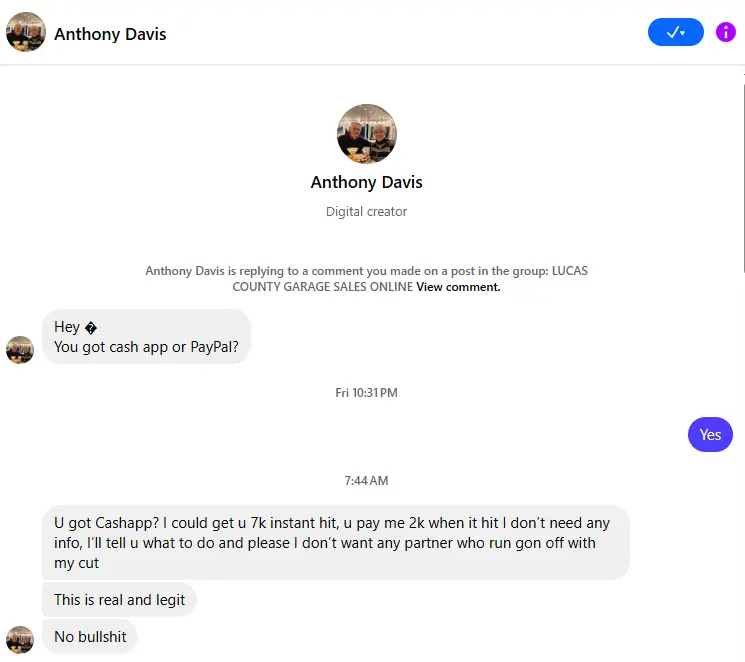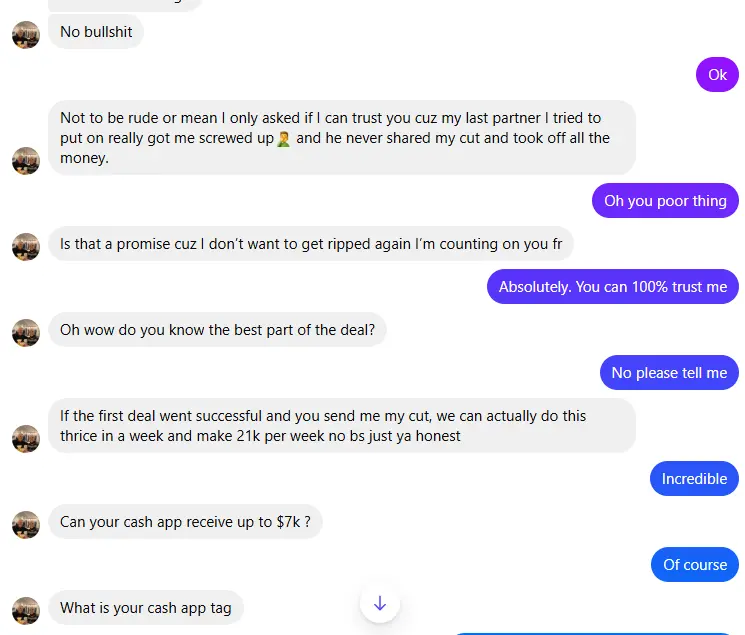Hey friends—Seby here from Computer Chick, and today I want to have a quick but important chat with you about something that hits closer to home than most people think: catfishing on Facebook.
If you've never heard the term, “catfishing” is when someone pretends to be someone else online—usually to trick you emotionally or financially. Unfortunately, Facebook is a common place for these scams, especially because it’s so easy to create a fake profile and start messaging people.
Let’s break it down. Here’s how catfishing works, how to spot it, and—most importantly—how to protect yourself and your loved ones.

🕵️♂️ How Catfishers Reel You In
A catfisher might:
- Send you a friend request out of the blue, often with a good-looking profile picture and vague mutual connections.
- Strike up a fast-moving friendship or romantic interest.
- Avoid video calls or even voice calls—claiming their camera’s broken or they’re too shy.
- Spin dramatic stories: they’re stuck overseas, lost their wallet, had a family emergency, etc.
- Eventually, they’ll ask for something—usually money, gift cards, or personal information.
But sometimes the scam is sneakier.
👥 They might pretend to be someone you already know. If you get a Facebook message from a friend or family member asking for help or money—don’t respond right away. Scammers often copy a real person’s profile and use it to trick you. Contact your friend another way (call or text them directly) to confirm it’s really them.
🚩 Red Flags to Watch For
Here are some warning signs a Facebook user might not be who they say they are:
💬 They move fast emotionally – saying “I love you” or calling you their soulmate within days or even hours.
💔 They claim to be divorced or a widow/widower—often with a tragic backstory to gain sympathy.
💼 They say they have a high-paying job—like a doctor, engineer, or someone working overseas (military, oil rig, etc.).
🎥 They refuse to video chat or give excuses about poor internet or broken cameras.
💸 They ask for money, gift cards, or even say they want to send you money (which can be part of a laundering scam).
💰 They ask for your Cash App, Venmo, PayPal, or phone number early in the conversation.
🚻 Their Facebook profile gender may not match the way they talk or present themselves.
🌍 All or most of their Facebook “friends” are from suspicious countries or don’t seem connected to the community they claim to be from.
📸 Their profile picture looks too perfect – often a stock photo, model, or celebrity image.
🗣️ Their English may be odd or inconsistent – like a mix of formal phrases and broken grammar.
😢 They tell stories that pull at your heartstrings—like being stranded, needing emergency help, or trying to get back to the U.S.
(actual screenshots of a classic example of a cashapp scam...)
🧠 Use These Tips to Stay Safe
- Be skeptical of strangers. If you don’t know them in real life, treat every interaction with a little healthy caution.
- Google their photos. Use reverse image search (like images.google.com) to see if their pictures are stolen from somewhere else.
- Never send money or gift cards. Real friends don’t ask for money out of the blue online—especially not through Facebook messages and they NEVER ask you to pay them with gift cards!!
- Double-check “weird” messages from friends. If someone you know asks for help or money, call or text them directly before you do anything.
- Don’t give out your phone number, payment apps, or personal info unless you know exactly who you’re dealing with.
- Report fake profiles. If you think someone is a catfisher, report and block them immediately.
💬 Real Talk
Catfishers aren’t just annoying—they can be dangerous, emotionally and financially. If you’ve ever been scammed or think you might be talking to someone suspicious, you’re not alone. Don’t feel embarrassed—these scammers are pros, and they target kind, trusting people on purpose.
Talk to someone you trust, or even reach out to a local tech expert (like me!) if you want help securing your accounts or figuring out if something seems off.
🔐 Stay Safe Online with Computer Chick
At Computer Chick, I help folks stay safe, secure, and confident when using technology. Whether it’s teaching you how to spot scams, locking down your Facebook privacy, or helping protect your computer from malware—I’ve got your back.
If you have questions or want a quick checkup of your online safety setup, just give me a shout. I’m happy to help.
Stay sharp out there,
—Seby
Computer Chick | Tech Help Without the Headache

